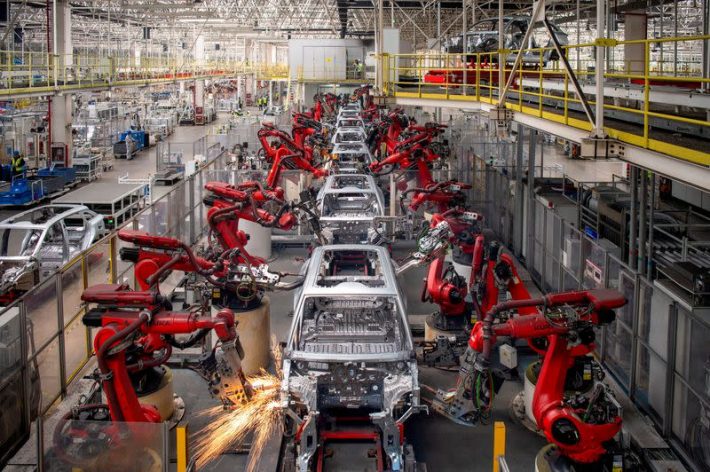China has objected to the US government’s plan to limit Chinese content in batteries for electric vehicles (EVs), saying it violates global trade principles and will disrupt supply chains.
The Biden administration issued-long awaited guidance last week that aims to limit Chinese content in batteries eligible for EV tax credits starting next year.
The plans will make investors in the US EV supply chain ineligible for tax credits should they use more than a trace amount of critical materials from China, or other countries deemed a “Foreign Entity of Concern” (FEOC).
ALSO SEE: India on Track to be World’s No3 Economy by 2030 – Firstpost
“Targeting Chinese enterprises by excluding their products from a subsidy’s scope is typical non-market orientated policy,” Commerce Ministry spokesperson He Yadong said.
“Many World Trade Organization members, including China, have expressed concern about the discriminatory policy of the US, which violates the WTO’s basic principles,” he said.
Fear of cheap Chinese EVs flooding markets
China’s dominant position in the global battery supply chain has prompted United States and European officials to take action over fears that cheap Chinese EVs could flood their markets.
The European Commission is currently investigating whether Chinese manufacturers benefit from unfair state subsidies.
Washington has already passed two laws explicitly excluding investors from being able to benefit from a $6 billion allocation of tax credits for batteries and critical minerals, as well as subsidies of $7,500 for every new energy vehicle produced, should they include FEOCs in their supply chains.
The term applies to China, Russia, North Korea and Iran. The rules will come into effect in 2024 for completed batteries and 2025 for the critical minerals.
The Biden administration is also proposing tough criteria, including a 25% ownership threshold, for determining whether a company is controlled by a FEOC.
“By establishing ‘glass barriers’, the US is doing more harm than good to the development of EV technologies and the industry more broadly,” He said, warning that the plans would “seriously disrupt international trade and investment”.
China accounts for almost two-thirds of the world’s lithium processing capacity and 75% of its cobalt capacity, both of which are used in battery manufacturing.
Analysts, though, have questioned whether China’s position in global battery supply chains warrants the US and EU rhetoric over the potential risks.
“There is a lot of hyperbole around this. And I’m not sure the measures the EU or the US are considering match the scale of the risk,” Dan Marks, a research fellow for energy security at the Royal United Services think tank, said.
“What we should be saying is these strategies in Europe and the US are really industrial strategies. They’re just about having competitive industries that can survive.”
- Reuters with additional editing by Jim Pollard
ALSO SEE:
US Rules to Limit Chinese Access to EV Tax Credits Announced
Europe Assessing Tariffs on Chinese EVs Amid Subsidy Concerns
China EV-Makers Start Steady in Europe Amid Cost, Trust Issues
Chinese EV ‘Invasion’ Forces Western Rivals to Slash Costs
US Checking EV Battery Imports Over China Forced Labour Fears
China’s CATL Posts Record Profit Even As Slowing Demand Bites
























